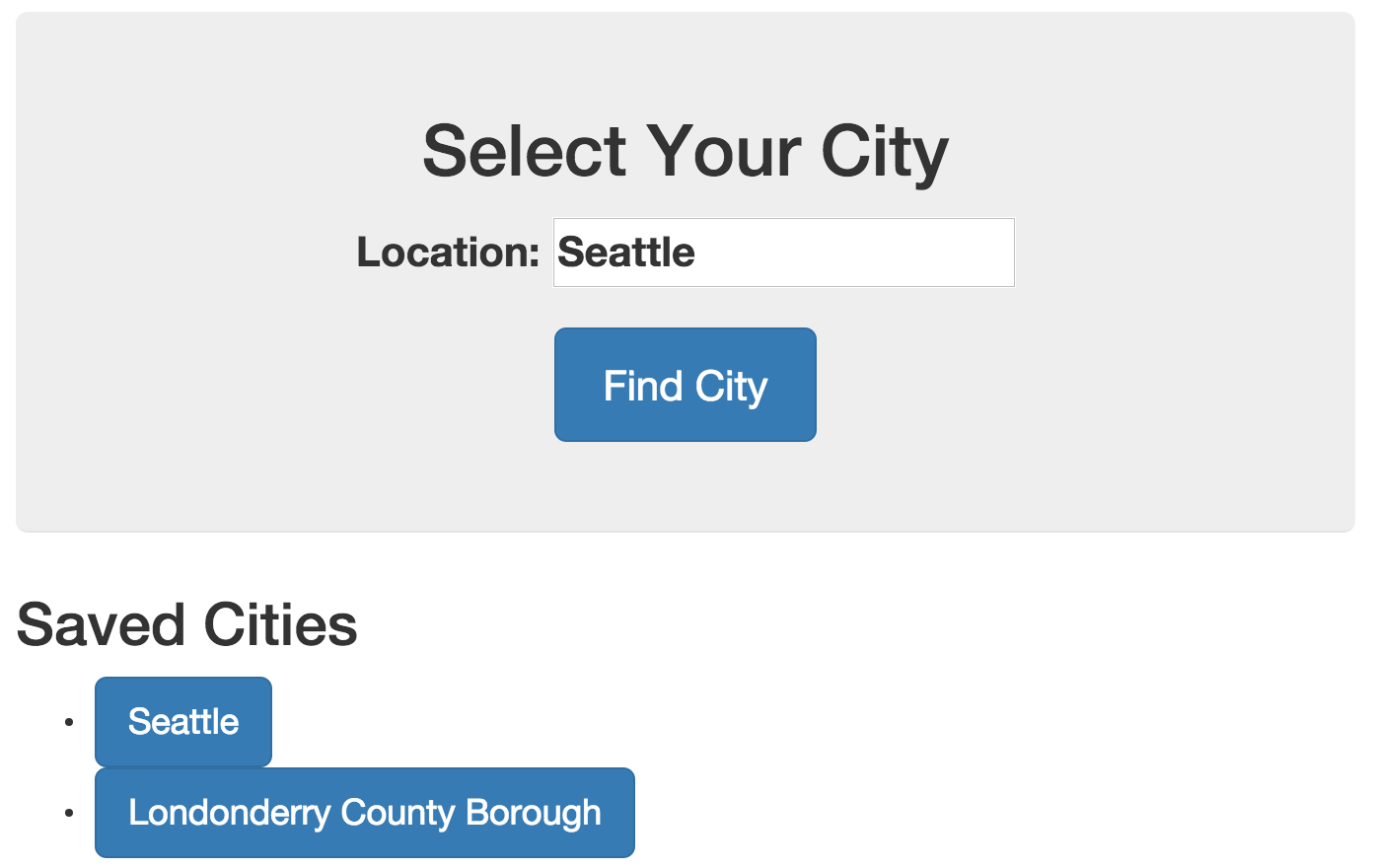Show List of Saved Cities
Now that we have a way for users to save their preferred locations, it is critical to give them a way to view and select those saved cities. We will display the saved cities list below our search box on the home screen. The home screen view is controlled by the MainCtrl Controller, and rendered in the app/views/main.html template. We will modify these two files to display saved cities to our users.
Modify the MainCtrl Controller
In the MainCtrl Controller we will have to make a couple of changes. As with the CurrentCtrl Controller, we will need to make $localStorage available to the controller:
.controller('MainCtrl', function ($scope, citysearch, $localStorage) {
Once we've added $localStorage to the controller declaration, we can add a quick mapping to a $scope variable so we can use $localStorage data inside of our template. Add this line to your controller:
$scope.storage = $localStorage;
That allows us to reference storage.savedCities in the template to access our list of saved cities. here is the entire MainCtrl Controller:
angular.module('yourApp')
.controller('MainCtrl', function ($scope, citysearch, $localStorage) {
$scope.citiesFound = citysearch.find();
$scope.storage = $localStorage;
$scope.findCities = function(){
$scope.citiesFound = citysearch.find({
query: $scope.location
});
$scope.searchQuery = $scope.location;
};
});
Add saved cities to the template
Now that we have made the $localStorage data available to our template, we can modify app/views/main.html to show a list of saved cities with links to view their current weather. To facilitate that change, we can add a section below our search results display:
<div ng-if="storage.savedCities">
<h2>Saved Cities</h2>
<ul class="saved-cities-list">
<li ng-repeat="city in storage.savedCities">
<a ng-href="/#/current/{{city.id}}" class="btn btn-lg btn-primary">{{city.name}}</a>
</li>
</ul>
</div>
Looking at the code above, we can see that this div will only display if there is data stored in the storage.savedCities variable (look at the ng-if directive to see where that is specified). If we do have some saved cities, then we will show a heading and a list of links.
Notice that the <li> elements repeat for every city in storage.savedCities. On the <a> elements we use the ng-href directive to specify the URL for viewing that city's current weather data, and we use the city.name variable to provide the link text.
Once we have made those changes, view your app and click into the current weather for any city. On the current weather screen, click "Save City" and then return to the home screen. You should now see your saved city listed below the search box like this:

If you see something resembling the image above, then congratulations. You have now completed all of the basic features to make your weather app run.